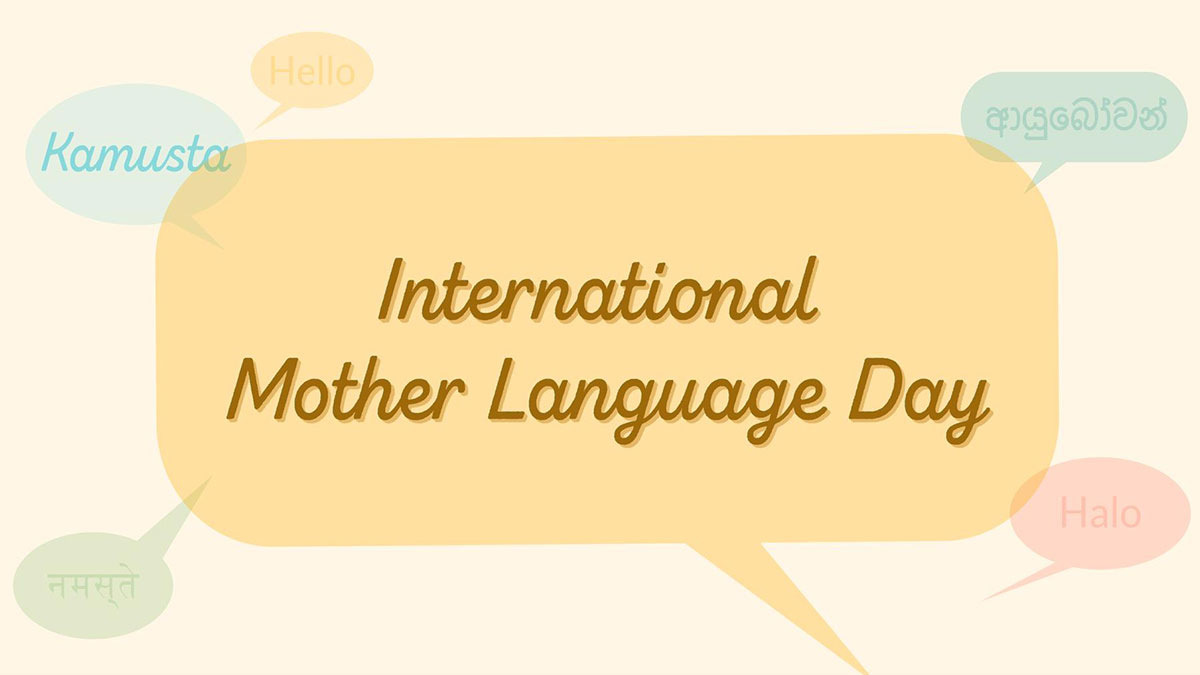International Mother Language Day was a concept introduced by Bangladesh and established by UNESCO in 1999. The day serves to celebrate linguistic diversity and promote mother languages across the world.
This International Mother Language Day, we’re excited to share personal perspectives from the diverse team at OrbitRemit. We asked the team what being bilingual means to them, and what kind of role it plays in defining OrbitRemit’s work culture.
Read on to join our team in reflecting on the connections between language and identity, and the joys and challenges that come with being bilingual.
What are the best things about being bilingual?
Jeevan (English, Nepali)
It gives us a great leverage to express ourselves without any issues, and reminds me of my mother tongue and nationality – Nepali. English helps with communicating at work, learning new stuff, new knowledge and for education purposes.
Shine (English, Hindi, Malayalam, Tamil, Telugu)
Speaking multiple languages has given me a deeper cultural awareness and sensitivity, fostering greater empathy and appreciation for diversity. Being fluent in five languages and able to read three of them, I enjoy broader access to media and literature compared to many. It’s incredibly rewarding to witness the expressions on my colleague’s faces when they realise I share familiarity with the music they’ve heard, books they’ve read and movies they’ve seen.
Steph (English, Chinese)
My partner won’t understand me when I’m teasing in Chinese lol
What reminds you of home, and what do you miss the most?
Reg (English, Tagalog)
Filipino food reminds me of home. To attempt to describe it, Filipino dishes’ look and flavours are very hearty and comforting. I went back to the Philippines last year for a work trip and honestly wanted to eat every kind of Filipino food that I haven’t had in years!
Steph (English, Chinese)
Generally speaking, food, TV shows and family remind me of home. I miss more of the fun stuff, like amusement parks, attending concerts and events with friends, my family in Beijing and my dog!
Gemma (English, Korean)
Definitely food, and I miss my family and friends the most. Being away from family and saying goodbye to them at the airport has always been the hardest and probably will be forever. But luckily I was able to visit Korea twice last year and that helped a lot for my homesickness.
Shine (English, Hindi, Malayalam, Tamil, Telugu)
I miss my home cuisine – the familiar tastes and flavours that remind me of family gatherings. I also miss the customs and celebrations that are part of my heritage. There’s a distinct difference in conversing in my native language and expressing myself freely. I long for the subtleties of communication found in my mother tongue.
Can you share a time that being bilingual was useful at work?
Jeevan (English, Nepali)
We have customers from Nepal who normally send money from New Zealand and Australia to support their families back home. Some of them have difficulties explaining their query in English. If they ask for language assistance, that’s the time where being bilingual can help to resolve the customer query in a timely manner and with ease.
Shine (English, Hindi, Malayalam, Tamil, Telugu)
You can hear the relief in a customer’s voice when I offer to speak to them in their language. It is something amazing. One moment we’re perceived as just a big company and the next, we’re welcomed as if we were their long-lost friend.
Reg (English, Tagalog)
Being bilingual is useful at work on a daily basis for me, specifically in the context of helping our Filipino customers.
Coming from an immigrant background, helping out our customers from similar ones is especially close to my heart and also one of my personal missions in life. I’ve only fully understood the extent of my mother’s hard work to provide a better life for our family when we’ve moved to New Zealand wherein abundant opportunities was the norm instead of for a privileged few.
How do the diverse languages and backgrounds of OrbitRemit employees help to define the work culture?
Gemma (English, Korean)
Having colleagues from diverse backgrounds has always opened my eyes to new cultures and sometimes a new culture shock, but in a very good way! I strongly believe that building strong relationships between colleagues is the most important thing to how work culture works. Everyone is really understanding and cares about each other’s backgrounds. This makes me feel comfortable to work with everyone at OrbitRemit.
Jeevan (English, Nepali)
The multiple languages and backgrounds of OrbitRemit employees show company strength and greatly define equality. Regardless of where people come from, it’s a place to know people and know our customers, working together to achieve company goals.
Steph (English, Chinese)
Having many multilingual speakers means we can reach more customers, and provide the option to talk in their language. Also it is easier to listen to what the customer needs. For the customer, it’s helpful that we can provide good customer service in their language, solve problems faster and reduce the cultural misunderstanding and language barriers.
_________________________________________________________________________
International Mother Language Day is a reminder of the importance of preserving and promoting linguistic heritage and diversity and recognising the key role language plays in shaping identity.
Thanks for joining us in reflecting on this International Mother Language Day!

